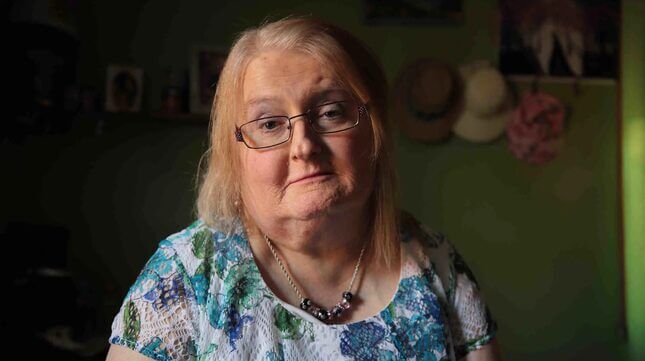The Impossibly High Stakes of Aimee Stephens's Supreme Court Case
Politics
Image: ACLU
Thirty years ago, the Supreme Court ruled that discrimination based on gender stereotypes violates Title VII of the 1964 Civil Rights Act. In a 6-3 decision, the Court ruled in favor of Ann Hopkins, an employee at Price Waterhouse who, despite helping the company nab the largest contract in its history, had been denied a promotion. Hopkins sued the company for sex discrimination. She had been told by men at the company, she recalled, to “walk more femininely, talk more femininely, dress more femininely, wear makeup and jewelry. Have your hair styled.” She was too “masculine,” according to her coworkers and bosses, in both her appearance and her demeanor. Seven years after she filed her initial lawsuit, the justices largely agreed with Hopkins that her bosses had judged her using stereotypical ideas of how a woman should look and act. In his decision, Justice William Brennan wrote, “We are beyond the day when an employer could evaluate employees by assuming or insisting that they matched the stereotype associated with their group.”
The landmark decision in Hopkins’s case has had wide-ranging impacts, especially for LGBTQ workers, who continue to be excluded from most states’ anti-discrimination laws. In recent years, as Emily Bazelon wrote in the New York Times Magazine in 2018, “courts have since extended the protection Ann Hopkins won to transgender people and to men who have trouble at work because they appear to be feminine.”
But on Tuesday, the Supreme Court will hear oral arguments in three cases that will determine whether LGBTQ workers—and by extension all workers—have federal protections against sex-based discrimination in the workplace. One of the cases is the first to specifically address the civil rights of trans people, and involves Aimee Stephens, a trans woman who was fired by her employer after she told him she was trans; the other two cases were brought by gay men, Gerald Bostock and the late Donald Zarda, who charged they were fired from their jobs because of their sexual orientation.
These are crucially important cases for LGBTQ workers, women workers, and frankly all workers.
As the ACLU’s Chase Strangio put it to the New Republic, “These are the single most important set of explicitly LGBT cases to ever reach the Supreme Court.” In the case of Stephens, Strangio wrote in the Washington Post that Tuesday’s oral arguments may mark “the first time the word ‘transgender’ is spoken during oral arguments in the highest court in the United States.”
-

-

-

-

-

-

-

-

-

-

-

-

-

-

-

-

-

-

-

-

-

-

-

-

-

-

-

-

-

-

-

-

-

-

-

-

-

-

-

-








































